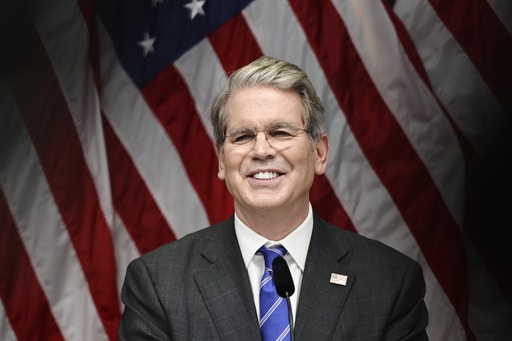On Wednesday, Treasury Secretary Scott Bessent assured that the Trump administration is dedicated to preserving Social Security, following his remarks earlier in the day about a new children’s savings initiative. President Donald Trump enacted the program through legislation, which Bessent described as a potential “backdoor for privatizing Social Security.”
That evening, Bessent emphasized that the newly formed accounts, a result of Trump’s tax reforms and spending cuts, are intended to “supplement the sanctity of Social Security’s guaranteed payments.” Through a post on X, he reassured, “This is not an either-or question: our Administration is committed to protecting Social Security and to making sure seniors have more money.”
The Treasury Secretary’s comments about Social Security privatization, as expressed during a forum hosted by Breitbart News, seemed to contradict Trump’s consistent assurances during his campaign and presidency that Social Security would remain untouched. This development rekindled a politically sensitive debate for Republicans, sparking reactions across party lines. The White House remained silent on requests for remarks.
Democrats quickly capitalized on Bessent’s statements, interpreting them as confirmation of the GOP’s interest in reviving a previously dismissed initiative to privatize this critical retirement program. Senate Democratic leader Chuck Schumer highlighted this in a Senate address, calling it “a stunning admission” and asserting, “Bessent actually slipped, told the truth: Donald Trump and the government want to privatize Social Security.”
While proposals to privatize Social Security have appeared on the Republican agenda before, they have historically been met with strong opposition from the American populace reliant on Social Security’s stability. These privatization concepts involve transitioning the retirement savings system responsibilities from the government to individuals, potentially jeopardizing retirement stability for many.
The newly initiated Trump Accounts, part of the GOP’s “big, beautiful bill,” are part of a children’s savings program allowing for accounts to be set up for newborns in the U.S., accompanied by a possible $1,000 deposit from the Treasury. These accounts function similarly to individual retirement accounts, with a post-tax contribution ceiling of $5,000 annually, and they are anticipated to follow IRA rules for future withdrawals.
Bessent further conceded that the savings accounts could serve as a precursor for shifting retirement savings responsibilities, stating, “In a way, it is a back door for privatizing Social Security.” The Treasury later reinforced that the accounts are meant to complement Social Security, stating, “Trump Accounts are an additive government program that work in conjunction with Social Security to broaden and increase the savings and wealth of Americans.”
The topic of Social Security privatization has had tumultuous political ramifications for Republicans, first emerging as a proposal during the George W. Bush administration. The idea was dropped after it failed to garner public support. Democrats have historically leveraged this issue to gain political advantage, as evidenced in the 2006 midterm elections where they warned voters of Republican intentions to privatize the program.
This week, Democrats persist in cautioning that Bessent’s comments unveiled Republican aspirations to convert the government-managed program into a private scheme. Tim Hogan, representing the Democratic National Committee, declared, “Donald Trump’s Treasury Secretary Scott Bessent just said the quiet part out loud: The administration is scheming to privatize Social Security.”
He criticized the administration for previous actions perceived to harm public welfare, accusing them of intending to undermine Social Security benefits. Social Security faces ongoing financial challenges, with projections indicating trust funds will not be able to provide full benefits by 2034.
Trump has consistently highlighted Social Security’s significance throughout his political career, promising protection for the program. He repeatedly assured during his 2024 presidential campaign that Social Security would be defended and critiqued opponents’ approaches. Trump had previously stated any revisions to the program would be aimed at increasing efficiency, not reducing benefits.


